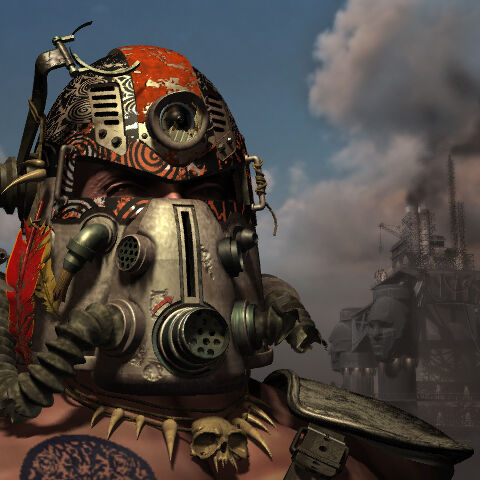I’ve been closely studying dialogue and cinematography in video games lately. Try to detach the dialogue system from the dialogue. What’s the best? Was it technically multiple systems or just one?

This whole quest scene was so unexpected, disturbing, hilarious and made me fall in love with the game. The timer for this choice makes the situation feel like a real intense JESUS FUCK WHAT DO I DO moment
This messed me UP the first time, omfg
This wasn’t wholly your question but you might like to look into what NOT to do with LA Noire. Originally the game’s dialogue options were labeled, “Coax,” “Force,” and “Lie.” You play a 1940’s police detective who has to solve crimes, so dialogue naturally comes up when you are interviewing witnesses or interrogating suspects. However, Rockstar as publisher made a shock change late in development where the devs had to change the options to “Truth,” “Doubt,” and “Lie.” These options, however, don’t actually quite fit with the actual dialogue of the game. Something I noticed a lot when I played the game was when I selected “Doubt,” to theoretically doubt what I thought was an obvious logical error or a half-truth, phelps instead just started screaming at the top of his lungs about executing people. Or other times I’d select “Truth” because the witness wasn’t lying but just being cautious with their words. It turns out that option was ‘wrong’ because I didn’t force out the key info I needed.
It wasn’t until I learned later on in my playthrough of this fatal publisher error that I instantly became way better at the game. Just had to switch around the words in my mind to what the original devs intended. Later releases of the game had “Truth” and “Doubt” changed to “Good cop” and “bad cop” but both of those also don’t really fit too well. Phelps isn’t always bad cop when forcing the truth, sometimes he’s just yelling because the witness is an asshole.
The reason Lie was never changed is because when you select Lie, you’re doubting their version and coming up with evidence to prove the contrary, like in Ace Attorney.
Just a little thing to keep in mind about dialogue options. Even though the words “Coax” and “Force” sound a little… advanced I guess, they still work way better mentally just because they actually describe the options. Truth and Doubt might help you reach a younger or less intelligent audience, but they don’t work because they don’t actually describe what the options give.
Press [X] to Doubt
Wow, that makes so much sense! I hated that I could never predict the dialogue outcome in that game. Maybe it’s time for a revisit?
I had no idea about the original labels, that makes Phelps’ dialogue make way more sense!
This was a meme for some time, like he’s talking to a little girl and suddenly screaming at her. Didn’t know the labels changed but that the dialog a huge joke.
“Coax,” “Force,” and “Lie.”
I’m pretty sure the original was “Accuse” instead of “Lie”, and the dialogs also made more sense thinking the response was “Accuse”.
Vampire: The Masquerade - Bloodlines has special lines that unlock according to your character build. Unlike a single Charisma skill, they’re divided into skills like ‘Intimidation’, ‘Seduction’, ‘Erudite’, etc. Intimidate options appear in ALL CAPS HULK SPEAK, seductive options are in italic in handwriting, and Erudite appears in blue. If you lose your humanity and become too bestial, dialogue starts disappearing as you’re too far gone to understand it and NPCs start being too scared to talk to you.
I loved the dialogue system in Shadowrun for SNES. It was pretty simple, didn’t really have any branches or anything, but it feels autonomous in a way that’s hard to match.
Basically, wherever you talk to someone, certain words in their lines will be in bold. Once you’ve seen one of the bolded keywords, you can ask any other character about those words. Most of them will spit out a canned response specific to that NPC unless you ask about something relevant to them, but the list of keywords is long. It makes it more than possible to play the game several times through and miss certain things. There are runners you can only hire if you get the right keywords, even parts in the main story where it takes a little wandering around trying different things to get the keywords you need or figure out where to use them. Some keywords are basically dead ends, only mentioned one or two times, maybe only in the conversation they’re found in, but others will come up again and again.
Shadowrun in general felt very open as a game. Even though it had some barriers to progress before being able to go everywhere, there’s a huge amount of freedom in general.
For its time the amount of freedom and depth in the same package was not at all the norm.
Morrowind similarly used this dialogue system, and I truly do like it a lot more than most others, even with a lot of options because it feels more like naturally discovering information and acting up on it, rather than just having a threshold on your stats, or completing quest triggers.
Alpha Protocol.
At first it seems like standard bioware multichoice like Mass Effect, Dragon Age, but there is also a time limit for you to make your decision.
This might sound frustrating, and some players hates this system as they wanted time to read and make the right choice, but I think it fits this game perfectly as you’re playing a Secret Agent where time is of the essence and the stakes are high, it really sets the tempo for the game.
IIRC in Alpha Protocol it picks one of the options by default right? Or does it leave you the option to stay silent?
It’s been a while, but yes I think it picks a default option or the currently selected one
I seem to remember there was a skill you could invest points into that would increase the conversation timer also.
Right. The “wait to remain silent” thing can take some getting used to, especially in the sort of game where you feel like your character would have a lot of questions, but I much prefer it to a default choice being made. I recently replayed one of Telltale’s games and I really enjoyed the way I could use silence as a tool. The game was The Wolf Among Us, where you play a detective who interrogates people a lot, and I used the time-honored interrogation technique of just remaining silent to make someone talk more.
Right now my mind is being blown away by Baldur’s Gate 3. It’s not the type of game I’d get into since I tried Divinity Original Sin 2 and couldn’t get more than 6 hours into it without feeling like I was stupid. I am bad at the combat system, but it more than makes up for it in Baldur’s Gate when you learn more about the Lore and character development. Their writing reminds me of Witcher 3, and that’s probably the last great single player game I’ve played recently aside from Elden Ring.
If you haven’t played Dragon Age Origins, I’d recommend it. BG3 follows the same exact playbook except with different combat mechanics.
Oxenfree
The dialogues are super fluid and dynamic. You can interrupt people and even steer conversations towards other topics with your choices. Conversations are in realtime. Dialogues feel so natural, you really should look it up if game dialogue design is something you find interesting.
The dialogue in Oxenfree is crazy, never seen anything else like that.
The ‘Thought-Bubbles’ do have a bit of a weird timing. I have to have chosen what to answer before the others are done talking most of the time. It’s not always optimal. The voice acting, though, is out of this world.
I think it depends on the game.
Need something fast paced, where the options don’t really matter? Go with just labels and don’t show the script.
Need fast paced but it matters? Go with the other commenter’s game that has a time limit while still showing scripts.
Slow and doesn’t matter? Do what you like, it doesn’t matter.
Slow and matters? Think Fallout: New Vegas - excellent script detail and what you choose makes a big difference
Outer wilds comes to mind
Outer wilds didn’t have much dialogue. Unless you’re talking about the alien glyphs?
Ya, those are like the real dialogues in the game
The best systems I’ve seen so far are super new and janky because they use AI and you just actually fucking talk to them, and are also only in some niche indie games atm. It’s what I’ve always dreamed to be the future of dialogue systems in games since getting into RPGs way back in the 90’s. The systems themselves are perfect; but the AI still has a little ways to go.
the witcher 3 is great It shows short sentences but Geralt doesn’t exactly say that and usually develops a little more. If you are impatient, you can choose a simple sentence and skip the talking without losing the general meaning. You can also listen to the whole thing.
I really loved the system used in Firewatch. It was similar to the Telltale system where you have a set of dialogue options, a limited time to respond, and silence is a valid option, but the game didn’t “pause” to let you choose. You could continue walking around and explore your surroundings during these conversations, which is very nice in a game about walking around in the woods. It also took into account context from earlier conversations to make later ones feel more specific and personal.
The developers gave a great talk about the dialogue system in GDC17: https://youtu.be/wj-2vbiyHnI












